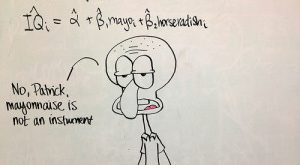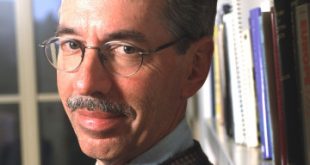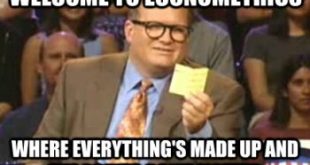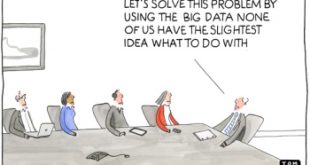Haavelmo and Frisch on the limited value of econometrics For the sake of balancing the overly rosy picture of econometric achievements given in the usual econometrics textbooks today, it may be interesting to see how Trygve Haavelmo — with the completion (in 1958) of the twenty-fifth volume of Econometrica — assessed the role of econometrics in the advancement of economics. Although mainly positive of the “repair work” and “clearing-up work” done, Haavelmo...
Read More »Statistics and econometrics are not very helpful for understanding economies
Statistics and econometrics are not very helpful for understanding economies A statistician may have done the programming, but when you press a button on a computer keyboard and ask the computer to find some good patterns, better get clear a sad fact: computers do not think. They do exactly what the programmer told them to do and nothing more. They look for the patterns that we tell them to look for, those and nothing more. When we turn to the computer for...
Read More »Econometric inconsistencies
In plain terms, it is evident that if what is really the same factor is appearing in several places under various disguises, a free choice of regression coefficients can lead to strange results. It becomes like those puzzles for children where you write down your age, multiply, add this and that, subtract something else, and eventually end up with the number of the Beast in Revelation. Prof. Tinbergen explains that, generally speaking, he assumes that the correlations under...
Read More »Bayesian religion
There is a nice YouTube video with Tony O’Hagan interviewing Dennis Lindley. Of course, Dennis is a legend and his impact on the field of statistics is huge. [embedded content] At one point, Tony points out that some people liken Bayesian inference to a religion. Dennis claims this is false. Bayesian inference, he correctly points out, starts with some basic axioms and then the rest follows by deduction. This is logic, not religion. I agree that the mathematics of Bayesian...
Read More »On randomness and probability in economics
On randomness and probability in economics Modern mainstream economics relies to a large degree on the notion of probability. To at all be amenable to applied economic analysis, economic observations have to be conceived as random events that are analyzable within a probabilistic framework. But is it really necessary to model the economic system as a system where randomness can only be analyzed and understood when based on an a priori notion of...
Read More »Living high and feeling low
Living high and feeling low High-altitude areas — particularly the US intermountain states — have increased rates of suicide and depression, suggests a review of research evidence in the Harvard Review of Psychiatry. The increased suicide rates might be explained by blood oxygen levels due to low atmospheric pressure, according to the article by Brent Michael Kious, MD, PhD, of University of Utah, Salt Lake City, and colleagues … They analyzed 12 studies,...
Read More »“Doctor, it hurts when I p”
“Doctor, it hurts when I p” A low-powered study is only going to be able to see a pretty big effect. But sometimes you know that the effect, if it exists, is small. In other words, a study that accurately measures the effect … is likely to be rejected as statistically insignificant, while any result that passes the p < .05 test is either a false positive or a true positive that massively overstates the … effect. … A conventional boundary, obeyed long...
Read More »Why the p-value is a poor substitute for scientific reasoning
Why the p-value is a poor substitute for scientific reasoning [embedded content] A non-trivial part of teaching statistics is made up of learning students to perform significance testing. A problem I have noticed repeatedly over the years, however, is that no matter how careful you try to be in explicating what the probabilities generated by these statistical tests really are, still most students misinterpret them. This is not to blame on students’...
Read More »Regression to the mean
Regression to the mean Regression to the men is nothing but the universal truth of the fact that whenever we have an imperfect correlation between two scores, we have regression to the mean. [embedded content] Advertisements
Read More »Statisticism — confusing statistics and research
Statisticism — confusing statistics and research Coupled with downright incompetence in statistics, we often find the syndrome that I have come to call statisticism: the notion that computing is synonymous with doing research, the naïve faith that statistics is a complete or sufficient basis for scientific methodology, the superstition that statistical formulas exist for evaluating such things as the relative merits of different substantive theories or the...
Read More » Heterodox
Heterodox








